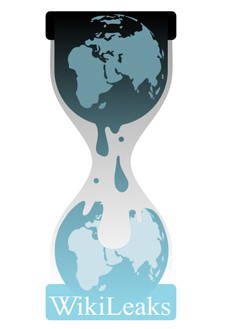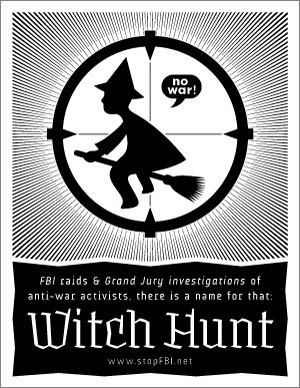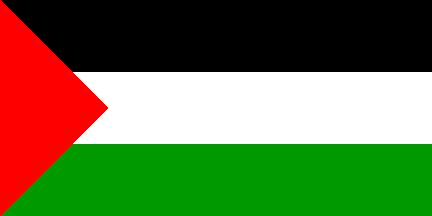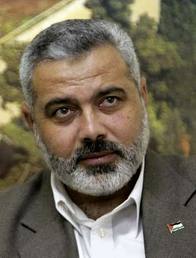
This is a "WikiLeaks News Update", a daily news update of stories that are obviously related to WikiLeaks and also freedom of information, transparency, cybersecurity, and freedom of expression.
Cablegate2 release
WikiLeaks' full Cablegate archive became available online, primarily due to the negligent publishing of its password in a book authored by Guardian journalist David Leigh.
Now the 251.287 US Embassy cables are also available through WikiLeaks and in searchable format at cables.mrkva.eu.
The whistleblowing organization urges the public to download and mirror the Cablegate2 archive and to continue the disclosure of the important information contained in the cables, by helping Al-Jazeera search the documents and sharing information via twitter using the hashtag #wlfind.

WikiLeaks has released a Statement on the circumstances leading to the disclosure of the archive:
…‘Every day that the corrupt leadership of a country or organization knows of a pending WikiLeaks disclosure is a day spent planning how to crush revolution and reform.

This is a "WikiLeaks News Update", a daily news update of stories that are obviously related to WikiLeaks and also freedom of information, transparency, cybersecurity, and freedom of expression. All the times are GMT.
- See @wlfind for some of the latest information found in the newly released WikiLeaks cables.
>> Updates on WikiLeaks news from #wlfind twitter hashtag (as curated by @wikileaks):
* Israel: A promised land for organized crime?
* German export of 184 lethal viruses to US Army for breeding.
* The cable on German spy sats & the BND that Der Spiegel decided not to publish.
* Video surveillance in Germany, an interesting perspective from the Duesseldorf Police Chief.
* Belarus moves to control the Internet based on Sweden, France, Germany, US.
* US embassy reports on human cloning and UFO cult in Canada.
* Kenya: Mungiki history traced to back to 1989 by US embassy.
* UN: "Collateral Murder" incident happened before. Reuters photojournalist shot at Abu Ghraib. No prosecution.
 Antiwar and international solidarity activists, subjects of a federal grand jury investigation that alleges they may have provided “material support for terrorism,” uncovered documents on FBI guidelines and investigation practices left behind in an activist’s home that was raided in September of last year. The documents illuminate how the FBI has conducted surveillance of the activists being targeted in the investigation and further prove the grand jury is being used as a tool to go after political groups.
Antiwar and international solidarity activists, subjects of a federal grand jury investigation that alleges they may have provided “material support for terrorism,” uncovered documents on FBI guidelines and investigation practices left behind in an activist’s home that was raided in September of last year. The documents illuminate how the FBI has conducted surveillance of the activists being targeted in the investigation and further prove the grand jury is being used as a tool to go after political groups.
On September 24 of last year, the home of Lindon Gawboy and Mick Kelly, an activist who helped to organize a mass demonstration outside the Republican National Convention in 2008, was raided and subpoenaed. Gawboy was awoken by FBI pounding on her door. She came to the door and asked for a search warrant. The FBI ignored her request for a warrant and proceeded to use a battering ram, which took the door off its hinges and shattered a nearby fish tank.
The agents raiding Gawboy and Kelly’s home emptied file cabinets and desks and stacked files around the apartments. They set up and went through individual documents taking files away that were of interest to them. At some point during this process, an agent’s papers on the investigation became mixed in with Kelly’s files. And, presumably by chance, Gawboy found the revealed documents just weeks ago.
 Violence has escalated significantly in the past month between Israel and Hamas in the Gaza Strip. The Itamar attack, which involved the stabbing of five members of a Jewish family by two individuals whom were believed to be Palestinians, and arms found, which Israel believed were being smuggled from Iran, inflamed tensions further. As some suggest Operation Cast Lead II has begun, Haaretz, Yedioth Ahronoth and Al Akhbar have begun to release US State Embassy cables on Israel from WikiLeaks.
Violence has escalated significantly in the past month between Israel and Hamas in the Gaza Strip. The Itamar attack, which involved the stabbing of five members of a Jewish family by two individuals whom were believed to be Palestinians, and arms found, which Israel believed were being smuggled from Iran, inflamed tensions further. As some suggest Operation Cast Lead II has begun, Haaretz, Yedioth Ahronoth and Al Akhbar have begun to release US State Embassy cables on Israel from WikiLeaks.
Haaretz reports on Hamas and the Gaza Strip. According to a November 2009 cable, Israel has no clear or consistent policy and Israel has refused US requests to “allow more goods into Gaza to assist the population.” Also, months after Operation Cast Lead, Embassy Tel Aviv reported, “Israelis are enjoying the best security situation since the outbreak of the second intifada [in 2000], the result of Israeli intelligence successes in destroying the suicide bombing network in the West Bank as well as good security cooperation with the Palestinian Authority’s security forces.”
This cable [09TELAVIV2473] features Major General Yoav Galant, the Israel Defense Forces general responsible for Gaza and southern Israel, commenting:
 WL Central will be updating news on Palestine, with new items added at the top. You can contact me on twitter @GeorgieBC or by email at admin@wlcentral.org.
WL Central will be updating news on Palestine, with new items added at the top. You can contact me on twitter @GeorgieBC or by email at admin@wlcentral.org.
Current time and date in Gaza:
WEDNESDAY, March 16
Demands from protesters in Manara square:
There have been many Twitter reports, both today and yesterday, of threatening texts from unknown numbers sent to all Gaza phone numbers and warning them to not attend protests or they would be killed.
Yesterday WL Central reported what seemed to be conflicting reports of assaults by Fateh officers and Fateh officers offering food to the protesters. The offers of food are being interpreted as an attack on the hunger strikers resolve and chants today include "No falafel! No cola!" President Abbas sent four jeeps full of food today, to divided reception.
Police are assisting in keeping the Fateh and March 15 groups from attacking each other in Bethlehem and broke up multiple fights today. According to Ma'an News reports, the Fateh group seems torn between disrupting or joining the protests.
From @PalYouthVoice:
"#March15Ramallah hunger strikers are up to 25 now, spirits are high and we're determined to go all the way to the end"
"things are back to normal, Fateh members helped to contain the thugs that attacked us"
As protesters attempted to gather on March, 16 morning in Al Kateeba sq, dozens of thugs (with sticks and clubs) cracked down on the crowd chanting for unity and raising the Palestinian flag to disperse them.
At least 10 students were taken to the hospital today and around 20 were arrested after Hamas plain clothes police and security forces arrived at Al Azhar university and beat up students and blocked anyone from entering or leaving the grounds. Many of the students were planning on attending today's unity rallies. A spokesman for the Hamas-run interior ministry denied that police had entered the university. "What happened at the university was a problem between students," Ihab al-Ghussein told AFP.
On Sunday, the Palestinian Health Ministry in Gaza warned of an impending 'public health disaster', reported first on WL Central here. In a press release on the organization's Web site, the Ministry states that the situation could include the death of hundreds of people, including cancer patients, those with tumors, and those in need of both kidney dialysis and intensive care.
Gaza War
Gaza's long-suffering has increased exponentially since Operation Cast Lead in December 2008, when Israel launched air attacks on Gaza in response to rocket and mortar fire by Hamas. The incident was preceded by an Israeli incursion into Gaza in November 2008 "to destroy what Israel said was a tunnel on the Gaza-Israel border dug by militants to infiltrate into Israel and abduct soldiers." (Source: Wikipedia)
Cable 08TELAVIV1984, released by Wikileaks today, is headlined at Uruknet "New Wikileaks cable shows 2008 war on Gaza was unprovoked: Israel knew Hamas was enforcing ceasefire" referring to the 2008 massacre that resulted in approximately 1,400 Palestinians killed in 22 days, an operation in which Israeli soldiers had orders to "cleanse" entire neighbourhoods, orders which they carried out. That is evident in the first part of the cable, where MOD Arab Affairs Adviser David Hacham, says Suleiman was keeping the pressure on Hamas, but the Israelis were frustrated at Hamas' 'stalling tactics' - Hamas was demanding Egyptian guarantees that Israel would not attack Gaza once Shalit was released. Regarding the Tahdiya, Hacham said Barak stressed that while it was not permanent, for the time being it was holding. There have been a number of violations of the ceasefire on the Gaza side, but Palestinian factions other than Hamas were responsible. Hacham said the Israelis assess that Hamas is making a serious effort to convince the other factions not to launch rockets or mortars.
The cable also returns to Egypt's anti-smuggling efforts, enforced by Israel and the US, and this time Israel has "decided to praise Egypt's performance publicly both in genuine acknowledgement of some improvements in destroying tunnels and in order to show the Egyptians that Israel was capable of praising as well as criticizing them. In private, however, Barak also pushed the Egyptians to do more, particularly in terms of stopping the smuggling well before the arms reach the Gaza border."
Today, Wikileaks released two more cables detailing Israeli pressure on the residents of Gaza Strip. As reported by WL Central here, the closure of tunnels bringing basic supplies into the Gaza Strip from Egypt have caused an urgent humanitarian crises for the people of Gaza. But US state cables show Israel pressuring the US to link aid to Egypt with the complete closure of those tunnels and the prevention of any supplies reaching Gaza through Egypt. Egypt's new vice president's involvement is also discussed.
In November of 2007, Israel Security Agency (ISA) Director Yuval Diskin met with US officials to discuss the 'problem' of supplies moving from Egypt to the Gaza Strip. In 07TELAVIV3258 Diskin outlines "a growing crisis in Israeli-Egyptian relations over smuggling across the Gaza border". Diskin told the US representatives that the ISA had, on several occasions, provided Omar Suleiman, Chief of Egyptian Intelligence Services, with detailed intelligence on the names of smugglers. In 2005, Diskin said he met personally with Suleiman in Egypt, at which time Suleiman promised personally to take responsibility for "cleansing the Sinai." Despite these promises, and Israeli offers to initiate joint operations, Diskin said Egypt has not acted to eliminate the smuggling networks. In Diskin's view, there is a core policy problem, in that the Egyptians view themselves as the primary mediator between the Israelis and Palestinians, and are careful not to alienate either side. "This is not possible with Hamas in Gaza," insisted Diskin.
 The Norwegian newspaper Aftenposten has published a set of cables that shed light on Omar Suleiman’s willingness to serve the interests of Israel. The man recently appointed as vice-president of Egypt, according to a cable from 2005, was willing to help former head of security in the Israeli Defense Ministry Amos Gilad by guaranteeing there would be no democratic elections in Gaza in 2006. He was also willing to help Israel better manage the Rafah crossing between Gaza and Egypt.
The Norwegian newspaper Aftenposten has published a set of cables that shed light on Omar Suleiman’s willingness to serve the interests of Israel. The man recently appointed as vice-president of Egypt, according to a cable from 2005, was willing to help former head of security in the Israeli Defense Ministry Amos Gilad by guaranteeing there would be no democratic elections in Gaza in 2006. He was also willing to help Israel better manage the Rafah crossing between Gaza and Egypt.
Cables released also reveal that a key motive for opposing Hamas was a fear that the Muslim Brotherhood would be emboldened. 05TELAVIV5864 details a meeting that Gilad wanted kept secret. Gilad talked about his fear of the Palestinian uprising movement Hamas, which was expected to get a large amount of the vote in the democratic elections in January 2006. Gilad was afraid that Hamas would win the election and that a Hamas win would "destroy everything."
 Hundreds of Hamas supporters in Gaza City protested in the streets on February 3 in support of the Eyptian revolutions and against Egypt's president Hosni Mubarak with the apparent tolerance or encouragement of the Hamas government. But later this week, a group of journalists and bloggers who organized their own protest had their protest broken up. Six women and eight men were arrested, and two of the women were beaten.
Hundreds of Hamas supporters in Gaza City protested in the streets on February 3 in support of the Eyptian revolutions and against Egypt's president Hosni Mubarak with the apparent tolerance or encouragement of the Hamas government. But later this week, a group of journalists and bloggers who organized their own protest had their protest broken up. Six women and eight men were arrested, and two of the women were beaten.
In Ramallah rallies were also broken up before they started. The Palestinian Authority police beat protesters with clubs and arrested two at a rally for Egypt in front of the Egyptian embassy on Sunday. "Our rally was simply in support of Egypt," one protester told Ma'an by phone, "we said nothing against the PA, we were not even out in the street." Earlier the same day, the Palestinian Authority had organized a rally in support of Mubarak which accused Egyptian opposition leader Mohammed El Baradei of being a CIA agent. The pro-Mubarak rally attracted a few dozen, the rally for the Egyptian people hundreds.
The rallies now appear to have changed from simply supporting Egypt to including calls for reform in Gaza. A Facebook page appeared on January 28 calling for a revolution in Gaza and naming February 11 a day of protest against the Hamas government. Four days later, another page was set up on Facebook, calling for a revolution in Ramallah and the ouster of President Mahmoud Abbas.
US State cable 2010-02-23 10DOHA70 details a February 14, 2010 meeting between Senator John Kerry and the Amir of Qatar. In the meeting, the Amir stresses the importance of Israel's return of the Golan Heights to Syria. Hamas "for sure," he said, will accept the 1967 border but will not say it publicly so as to lose popular Palestinian support. The Amir accuses Egypt of delaying an agreement between Israel and Palestine to extend their own role. "According to the Amir, Fatah and Hamas agreed on a memorandum of understanding, but the Egyptians wanted it changed." The Amir offers to deliver a message from the US to Iran.
Syria
US state cable 2010-02-24: 10DOHA71 outlines Senator Kerry's meeting with Qatar's Prime Minister, Hamad bin Jassim Al Thani (HBJ) on February 13, 2010. In the meeting, HBJ stresses that it is a mistake to exclude Hamas from Israeli-Palestinian negotiations, equates Egypt to a physician with one patient, and accuses Egypt of having a vested interest in dragging out the talks for as long as possible. He also warned against a US military action against Iran.
HBJ told Senator John Kerry February 13 that "everyone in the region" seems to have a separate plan for moving ahead on the Israeli-Palestinian dispute when only one plan was needed; a plan that both the Israelis and Palestinians would accept and finalize. HBJ underscored that it is a mistake to ignore Hamas in seeking a lasting agreement. Saying this does not mean that Qatar expresses a preference for Hamas, but the Palestinian Authority (PA) cannot sign off on an agreement on behalf of the Palestinians where open divisions exist.
In a statement to the press, Saeb Erekat, chief PLO negotiator, spoke out against the reports based on the Palestine Papers in Al Jazeera and the Guardian. "In the past few hours, a number of reports have surfaced regarding our positions in our negotiations with Israel, many of which have misrepresented our positions, taking statements and facts out of context. Other allegations circulated in the media have been patently false."
While Al Jazeera suffered from about 50 protesters smashing the windows and security cameras of their TV studios, there may have been long term implications for the Palestinian leadership.
Speaking to journalists in Cairo, the Palestinian president, Mahmoud Abbas, said the public had been misled by the reports. "We say very clearly, we do not have secrets."
The citizens of Gaza remained unconvinced.
Earlier this week, Israel was accused of ethnic cleansing of Israeli Arabs based on material in the Palestine Papers (summarized here and here). In the Palestine Papers, documents show Israeli negotiators wanting to cut out Arab occupied parts of Israel and give them to Palestine as they were considered "Palestinian" parts of Israel. Other documents discuss the Palestinian diaspora and Israel's refusal and Palestine's inability to accept them as citizens. US Secretary of State Condoleeza Rice suggested they should be transported to Chile and Argentina.
Yesterday, Nurit Kedar aired a report on Channel 4 News telling of a different kind of ethnic cleansing.
Part 1 of the Palestine Papers summary is here. The summary concludes with the last documents released on January 26th, and Al Jazeera's editorials on the documents.
Private exchanges between Palestinian and American negotiators in late 2009, when the Goldstone Report was being discussed at the United Nations.
PA stonewalled the Goldstone voteThe UN Human Rights Council was to vote on a resolution supporting the Goldstone Report, the UN’s probe of war crimes committed during Israel’s war in Gaza, on October 2, 2009. The Palestine Papers document exchanges between the US, Israel and the Palestinian Authority during that period. The Palestinian Authority's chief negotiator Saeb Erekat, looking for an agreement he could politically agree to, was convinced by the US, who were determined that Obama's promises of renewed negotiations would be met, that renewing negotiations was in their best interests.
During a series of meetings, Erekat presses for some guidelines or foundations for the discussion "SE cautioned that if the US announced negotiations and there is no agreement on these issues, there will be a disaster." The US refuses to provide any, making clear that for them, the process is the important object. "Undoubtedly you've perceived the sense of urgency of the President. He attitude was consistent: we need to proceed to negotiations ... Regardless of the package with the Israelis, we are not asking you to agree to it. So there is no risk of acquiescence."
On January 23, Al Jazeera announced their possession of 1,684 files of confidential documents related to the Israeli-Palestinian conflict, and with the release of these documents, they launched their new Transparency Unit. They released the Palestine Papers and reported on their contents between January 23-26th, 2011. The documents include:
These accounts of high level exchanges and strategy papers cover a period from 1999 to 2010. As promised by Al Jazeera, they have revealed new details regarding:
The Palestinian Authority’s willingness to concede illegal Israeli settlements in East Jerusalem, and to be “creative” about the status of the Haram al-Sharif/Temple Mount.
Al Jazeera launches Transparency Unit:
Launched in January 2011, the Al Jazeera Transparency Unit (AJTU) aims to mobilize its audience - both in the Arab world and further afield - to submit all forms of content (documents, photos, audio & video clips, as well as “story tips”) for editorial review and, if merited, online broadcast and transmission on our English and Arabic-language broadcasts. ...
From human rights to poverty to official corruption, AJTU will fairly evaluate and pursue all leads and content submitted, without geographical, political, cultural, or religious bias.
Theme by Danetsoft and Danang Probo Sayekti inspired by Maksimer